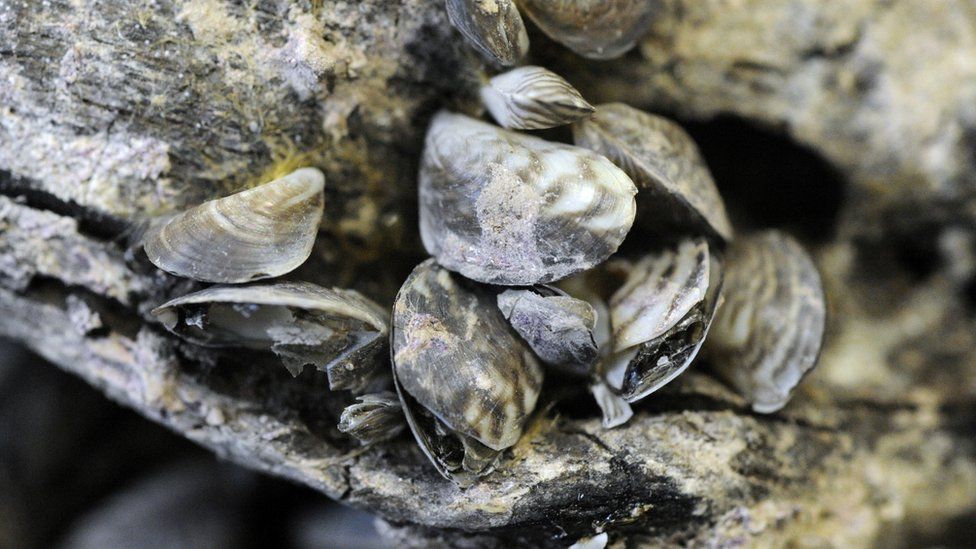Invasive quagga mussel found at Rutland Water and River Trent

An invasive non-native species of mussel that can harm wildlife and cause water pipe blockages has been discovered in the East Midlands.
The Environment Agency said quagga mussels had been found at Rutland Water and the River Trent in Lincolnshire.
Anglers and other waterway users have been asked to help stop the species spreading by checking, cleaning and drying their equipment.
Officials are also checking other rivers in the region.
Read also: Surprise discovery of rare plant at Norfolk ‘ghost pond’
The Environment Agency said quagga mussels, which originated in Ukraine, were first recorded in the UK in the River Thames near Heathrow Airport in 2014.
The molluscs form large colonies on hard surfaces, which can block pipes, and disrupt marine ecosystems by outcompeting native mussels.
It is not yet known how they came to be in the East Midlands.
The agency said while the mussels “do not pose any immediate direct threat to water quality, animals or people, they do spread rapidly and can block pipes and water-based assets, resulting in significant future maintenance costs”.
Area environment manager Geoff Craig said: “Unfortunately, further spread of the quagga mussels is highly likely, but we can slow down the spread.
“We urge all water users in the affected areas to follow the required bio-security procedures of ‘check, clean, dry’ whenever working or engaging in leisure activities in or near the water.”
The Environment Agency said it was also working with Anglian Water, which manages Rutland Water, and the GB Non-Native Species Secretariat “to agree an appropriate bio-security response”.
